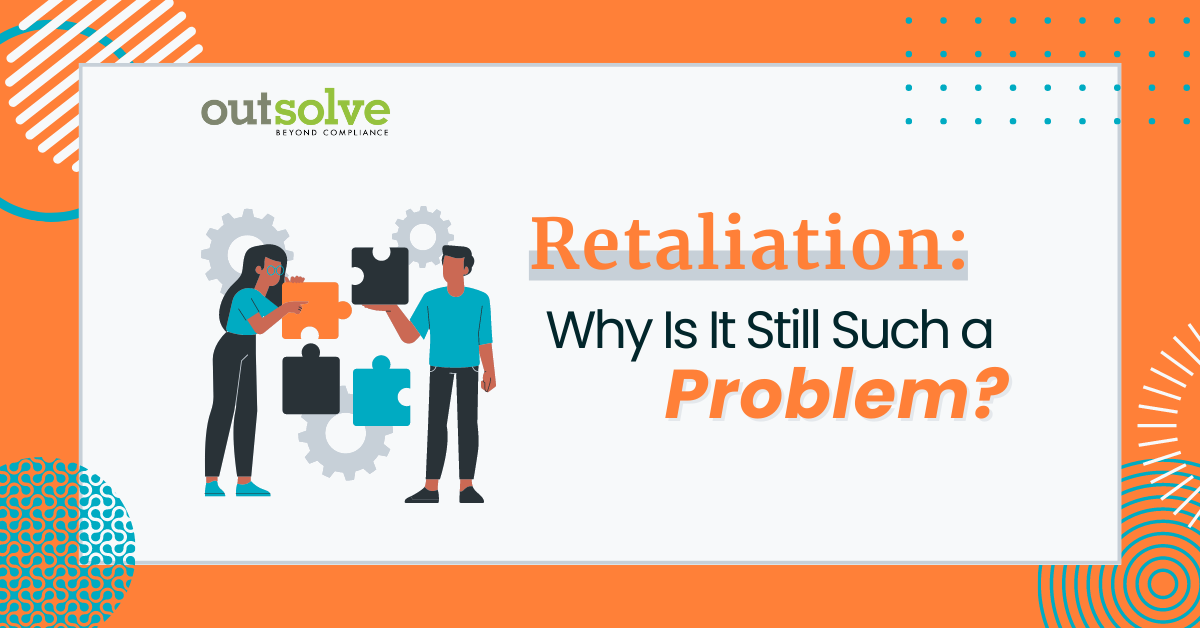For quite some time, retaliation has been one of the most alleged bases in charges of employment discrimination filed with the Equal Employment Opportunity Commission (EEOC). The numbers of the charges just seem to continue to rise. All of the statutes EEOC enforces have non-retaliation provisions. The cause of this phenomenon seems to be a mystery.
Perhaps one of the reasons for retaliation goes back to our human nature. We all remember the saying, “An eye for an eye and a tooth for a tooth.” I wonder if that concept affects how people who have complained about discrimination are treated following their complaints. I have interviewed many supervisors who have been accused of discriminatory conduct and many are very upset by the allegations. Some have been angry and others have been hurt. In either case, the allegation seems to have caused a rift between the employee who complained and their supervisor. Being accused of discrimination is very personal to most individuals. So, in order to “get even” with the employee, the supervisor takes some adverse action against the person usually after the initial complaint is resolved.
When we discuss retaliation in the employment context, the definition we use is: any action that is likely to deter. The threshold to substantiate a claim of retaliation is a lower standard than some others. If an employee sees some adverse action taken against a co-worker who complained about an alleged discriminatory act, policy, or practice, that action may cause other employees not to come forward with complaints for fear of something happening to them.
In terms of retaliation under the statutes that EEOC enforces, an employee may be protected from retaliation by opposing an action or policy/procedure they consider to be discriminatory or for participating in the EEO process itself. Let’s look at an example that may lead to coverage under both opposition and participation. If an employee requests a reasonable accommodation under the Americans with Disabilities Amendments Act (ADAAA) and/or Title VII of the Civil Rights Act of 1964, as amended, (Title VII), they have participated in the EEO process by exercising their legally protected right to request an accommodation. If the accommodation for that same employee is denied and the employee complains about the denial, that is considered to be opposition retaliation since they are opposing the denial. And, as an aside, the Pregnant Workers Fairness Act (PWFA) which is effective June 27, 2023, allows pregnant workers and those affected by childbirth or related medical conditions to request reasonable accommodations.
Training for supervisors is essential to alleviating retaliation. Supervisors need to understand their responsibility to refrain from retaliation. Supervisors also need to understand that the outcome of the employee’s complaint is not important in analyzing a complaint alleging retaliation. Even if the initial allegations are not substantiated, the employee has protection from retaliation for opposing discrimination and/or participating in the EEO process. Supervisors also need to be aware of conduct by co-workers who may retaliate against a complainant for filing a complaint and stop it at once if observed.
With a concerted effort and training, perhaps retaliation can be eradicated. If you have questions about retaliation, feel free to reach out to me at (502) 553-7648 or at eeoadvatntage@gmail.com.
President at EEO Advantage, LLC
Weekly OutLook
Featured Posts

5 Key Compliance Items HR Can’t Afford to Ignore

HR Compliance Checklist: What Every HR Pro Needs to Know
Related Posts

What Texas HB 149 Means for HR Professionals
AI is already changing how companies hire, manage, and evaluate employees in the workplace. For HR professionals, AI is a game changer because it can...

New Jersey Pay Transparency Laws: What You Need to Know
Update: New Jersey proposed updates to its pay transparency law in October 2025. If passed, the requirements will be a first of its kind in that...

Legal Series: Top 4 HR Compliance Trends to Watch in 2026
This article is part of an ongoing legal series designed to provide insight and practical guidance on current and emerging workplace compliance...
 Toni Ahl
Toni Ahl

